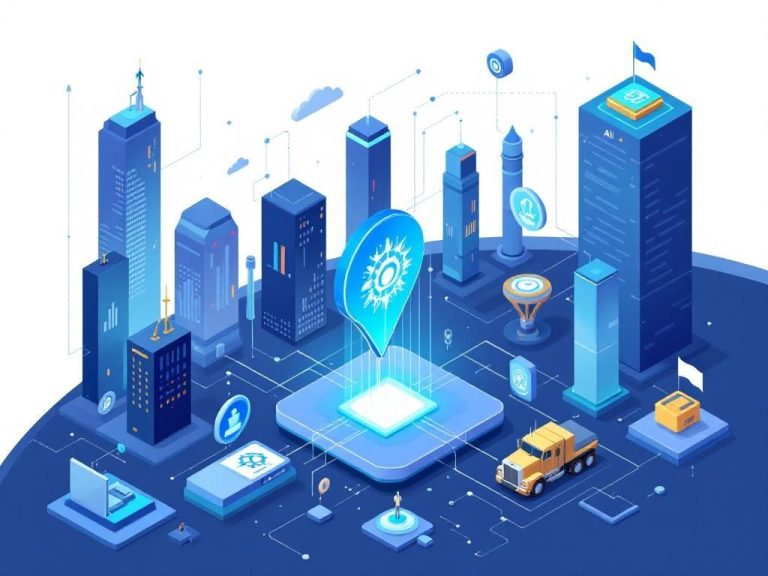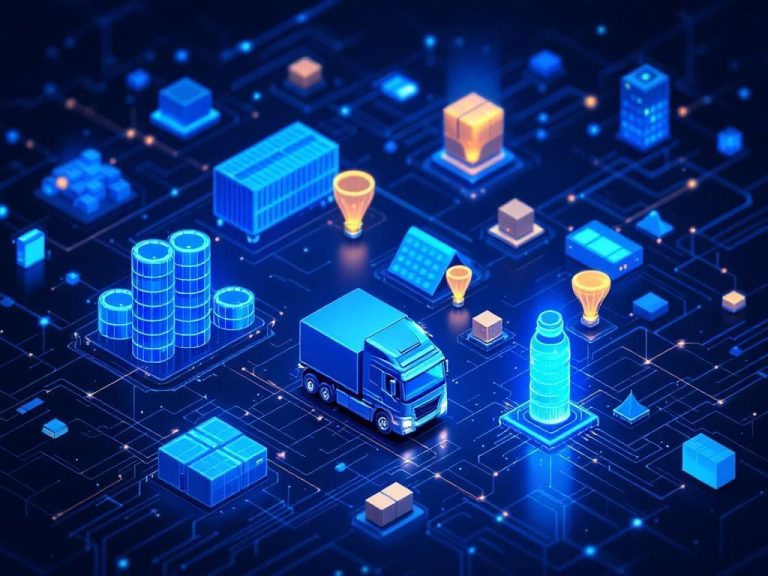In today’s fast-paced world, the logistics industry faces unprecedented challenges, from rising consumer expectations to complex global supply chains. As businesses strive to enhance efficiency and reduce costs, artificial intelligence (AI) emerges as a transformative force in the logistics sector. By leveraging AI supply chain tools, companies can not only streamline operations but also gain significant competitive advantages.
Understanding AI in Logistics
AI refers to the simulation of human intelligence in machines programmed to think and learn. In logistics, it encompasses various technologies that enable computers to analyze data, make decisions, and predict outcomes. From autonomous vehicles to predictive analytics, AI applications in logistics are vast and varied.
Key AI Technologies in Supply Chain Management
- Machine Learning: Algorithms that analyze historical data to identify patterns and make predictions about future events.
- Natural Language Processing (NLP): Enables machines to understand and interpret human language, facilitating better communication in logistics operations.
- Robotics: Automated systems that can perform manual tasks, enhancing efficiency in warehouses and distribution centers.
- Internet of Things (IoT): Devices connected to the internet that collect and exchange data, providing real-time insights into supply chain operations.
The Benefits of AI Tools in Logistics
Implementing AI supply chain tools can provide several advantages for logistics companies:
- Enhanced Efficiency: AI automates routine tasks, reducing the time and effort required for logistics operations.
- Cost Reduction: By optimizing routes and inventory management, AI helps companies save on transportation and storage costs.
- Improved Decision Making: AI-driven analytics provide valuable insights that support strategic decision-making processes.
- Better Customer Experience: AI tools can enhance service levels by predicting demand and improving order fulfillment times.
Case Studies: AI Success in Logistics
Several companies have successfully integrated AI supply chain tools into their operations, leading to significant improvements. Here are a few notable examples:
| Company | AI Tool Implemented | Results |
|---|---|---|
| Amazon | Robotic Process Automation (RPA) | Increased warehouse efficiency by 20% and reduced shipping times. |
| DHL | Predictive Analytics | Improved demand forecasting accuracy by 30%. |
| UPS | Route Optimization Algorithms | Reduced fuel consumption by 10% and cut delivery times. |
Challenges of Implementing AI in Logistics
Despite the numerous benefits, integrating AI into logistics operations is not without its challenges:
1. Data Quality
AI systems rely heavily on data. Poor data quality can lead to inaccurate predictions and decision-making errors.
2. High Initial Investment
Implementing AI technologies often requires substantial upfront investments, which can be a barrier for smaller companies.
3. Workforce Impact
Automation may lead to concerns about job displacement, prompting the need for reskilling and workforce management strategies.
Best Practices for AI Integration in Supply Chains
To maximize the benefits of AI in logistics, companies should consider the following best practices:
- Invest in Data Management: Ensure that data is accurate, up-to-date, and accessible to AI systems.
- Start Small: Pilot AI projects on a smaller scale before full implementation to gauge effectiveness.
- Foster a Culture of Innovation: Encourage teams to embrace new technologies and continuous learning.
- Collaborate with Experts: Partner with AI specialists or consultants to drive successful integration.
Future Trends in AI Logistics
The future of logistics will be increasingly influenced by AI advancements. Here are some trends to watch:
- Increased Automation: More companies will adopt autonomous vehicles and drones for delivery, reducing labor costs and increasing efficiency.
- Enhanced Predictive Analytics: AI systems will become more sophisticated, leading to more accurate forecasts and improved inventory management.
- Artificial Intelligence Ethics: As AI becomes more prevalent, ethical considerations, such as data privacy and algorithmic fairness, will take center stage.
Conclusion
AI supply chain tools are revolutionizing logistics, enabling companies to operate more efficiently, reduce costs, and improve customer satisfaction. By understanding the technologies involved and adopting best practices, organizations can navigate the challenges and harness the full potential of AI. As we look to the future, the logistics landscape will undoubtedly be transformed by continued innovations in artificial intelligence.
FAQ
What are AI supply chain tools?
AI supply chain tools are software solutions that leverage artificial intelligence to optimize logistics processes, improve inventory management, and enhance demand forecasting.
How can AI improve supply chain efficiency?
AI can analyze vast amounts of data to identify patterns and trends, streamline operations, reduce costs, and improve decision-making in supply chain management.
What are the benefits of using AI in logistics?
The benefits of using AI in logistics include increased accuracy in demand forecasting, improved route optimization, enhanced visibility across the supply chain, and reduced operational costs.
Can AI supply chain tools integrate with existing systems?
Yes, most AI supply chain tools are designed to integrate seamlessly with existing logistics and enterprise resource planning systems, enhancing their capabilities.
What industries can benefit from AI supply chain tools?
Industries such as retail, manufacturing, automotive, and food and beverage can significantly benefit from AI supply chain tools by improving their logistics and operational efficiencies.
How do I choose the right AI supply chain tool for my business?
To choose the right AI supply chain tool, consider factors such as your specific logistics challenges, integration capabilities, scalability, and the tool’s ability to provide actionable insights.




